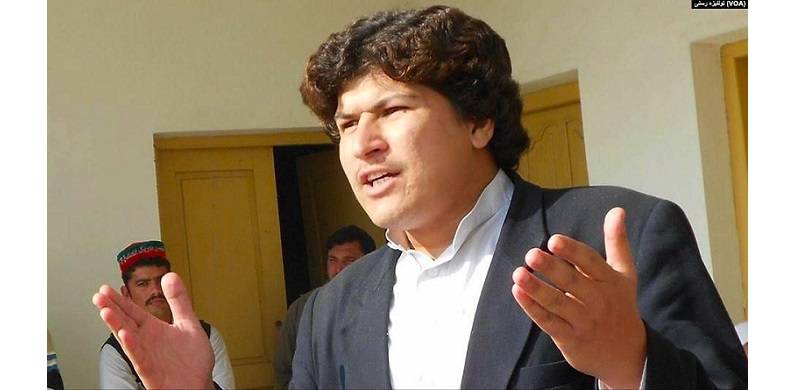
Yesterday after a long and tiring day, I started reading PTM activist Alamzeb Mehsud's book I am not the Accused, I am the Complainant, which was banned in Pakistan soon after its publication late last year. Luckily, I got a scanned copy of the book from a friend. I finished two chapters yesterday and resumed reading it after I woke up today.
After finishing the book, I took a long walk in the evening to reflect on what Alamzeb says in the book and what it means for the Pashtun struggle for rights. While strolling on the snowy pavement along the road in a small town of New Jersey, my mind was everywhere Alamzeb describes in the book: Karachi Central Jail, Malir Cantt Police Station, the Court, the police van, North Waziristan, South Waziristan, Dera Ismail Khan and many other places.
Then the scenarios described in the book replayed in my mind. I saw how Alamzeb was picked up in broad daylight by men in plainclothes and uniforms, putting guns at him. I imagined him fearing for his life when he was thrown in a police van and taken blindfolded to an unknown location. I pictured the secret service agents scaring, manipulating and beating him because he did not give in to their malicious demands.
He went hungry for five days because both his hands were chained to a hook on the jail's floor. He prayed while chained to the same hook. He almost died of cold – if he had not had his woolen patu (chador) with him. He was kept in solitary confinement unlawfully and was not allowed any rights that the constitution gives to prisoners. The list of cruelties inflicted on him during detention is endless.
In the book, he describes the issues of the missing persons, the terrorization of their families, bombardment of villages and bazaars, harassment of men and woman at checkpoints, the maiming of children and the elderly by land mines, the blowing to smithereens of locals by bomb blasts, displacements of hundreds of thousands from their homes and much more.
My first reaction as I was reading through the book was intense feelings of terror and anger. Terrorized at how miserably helpless my people are. Angry at how brazenly violent this state is. But then I realized that terror and anger are both negative and destructive emotions, especially in the context in which the Pashtuns are struggling for rights and autonomy.
Alamzeb stood up for the rights of his people, which were violated by the state. He stood up to defend them against a life of misery and disgrace. He exposed the most heinous crimes committed behind closed curtains on the Pashtun soil and by bringing them to the public eye, he risked death in defense of his people. He risked losing something as valuable as life.
What struck me most was the chapter “Life and Death.” He writes, "What is death? Why do we run away from it when we know we can't escape it?" He maintains, "What is the difference between living and embracing the shadow of death? The living are those who try to improve their surroundings, stand up against evil and cruelty, empathize with the pain of people and call out with their tongue the cruel for their cruelty."
"While the dead are those who are apathetic to the sorrows of the nation's mothers, sisters and children. They are heedless of everything. No cruelty of the world can awaken their conscience." He continues, "If we want to live like the dead, we can be called alive but we will not be alive. We will be the walking, talking dead."
He says that we have to understand life and death more consciously and conceptually. No matter what happens, "Man transfers from one world to another and his body decomposes in the soil from where it comes." Death should not be feared. It is the fear of death and separation of our loved ones that the Powers That Be use as leverage against the people to stop them from, as Václav Havel put, "living in truth."
He says that if we control this fear of separation, then no power will withstand the people's strength. Then the Powers That Be who claim to be omnipotent, omnipresent and indefatigable and who disappear, torture, and kill innocent people will fall like a wall of sand.
